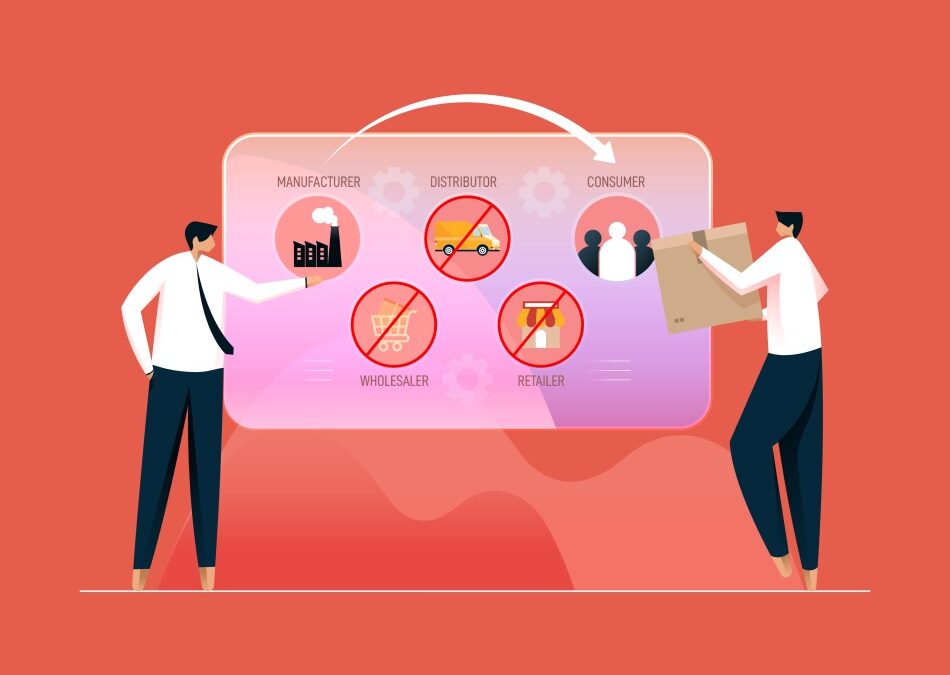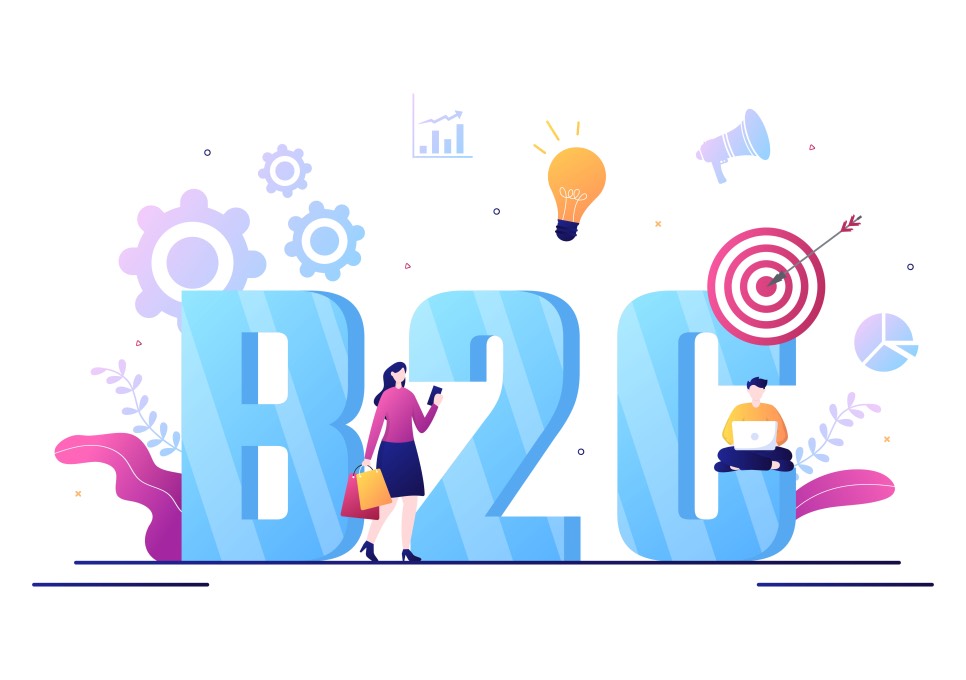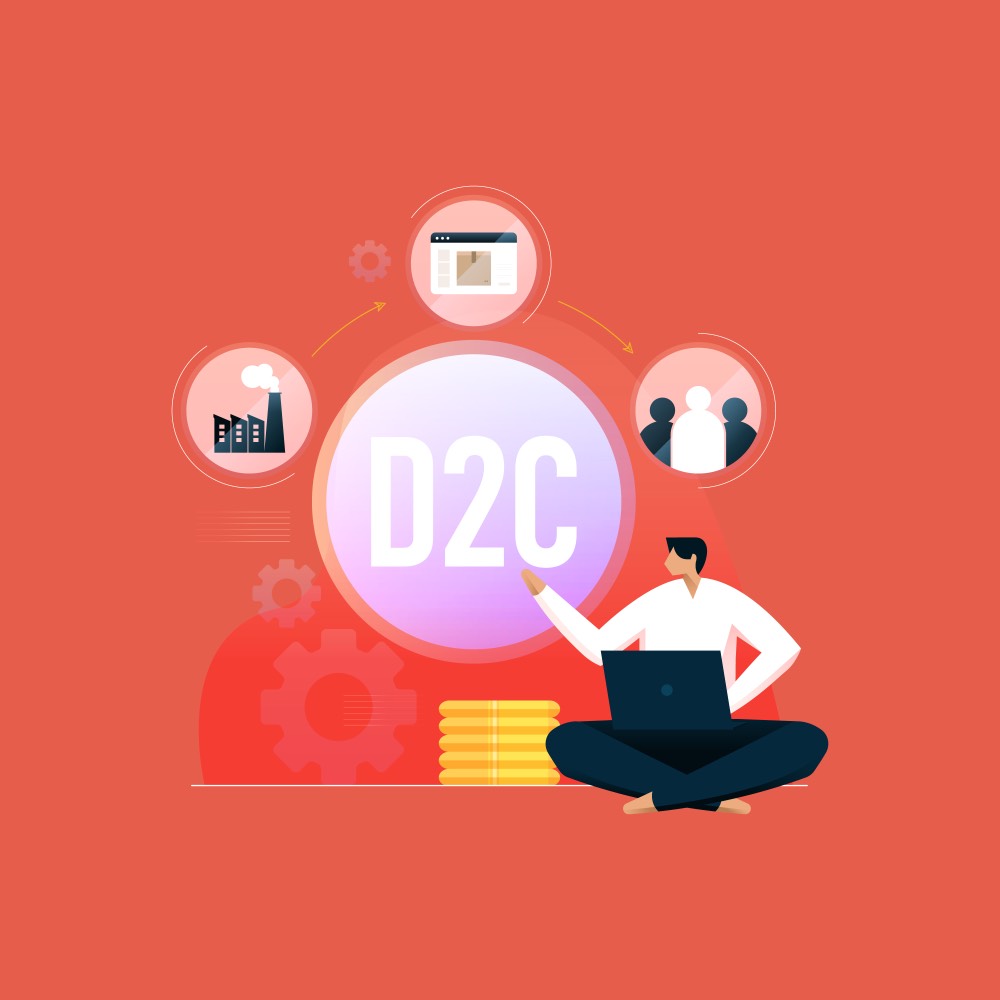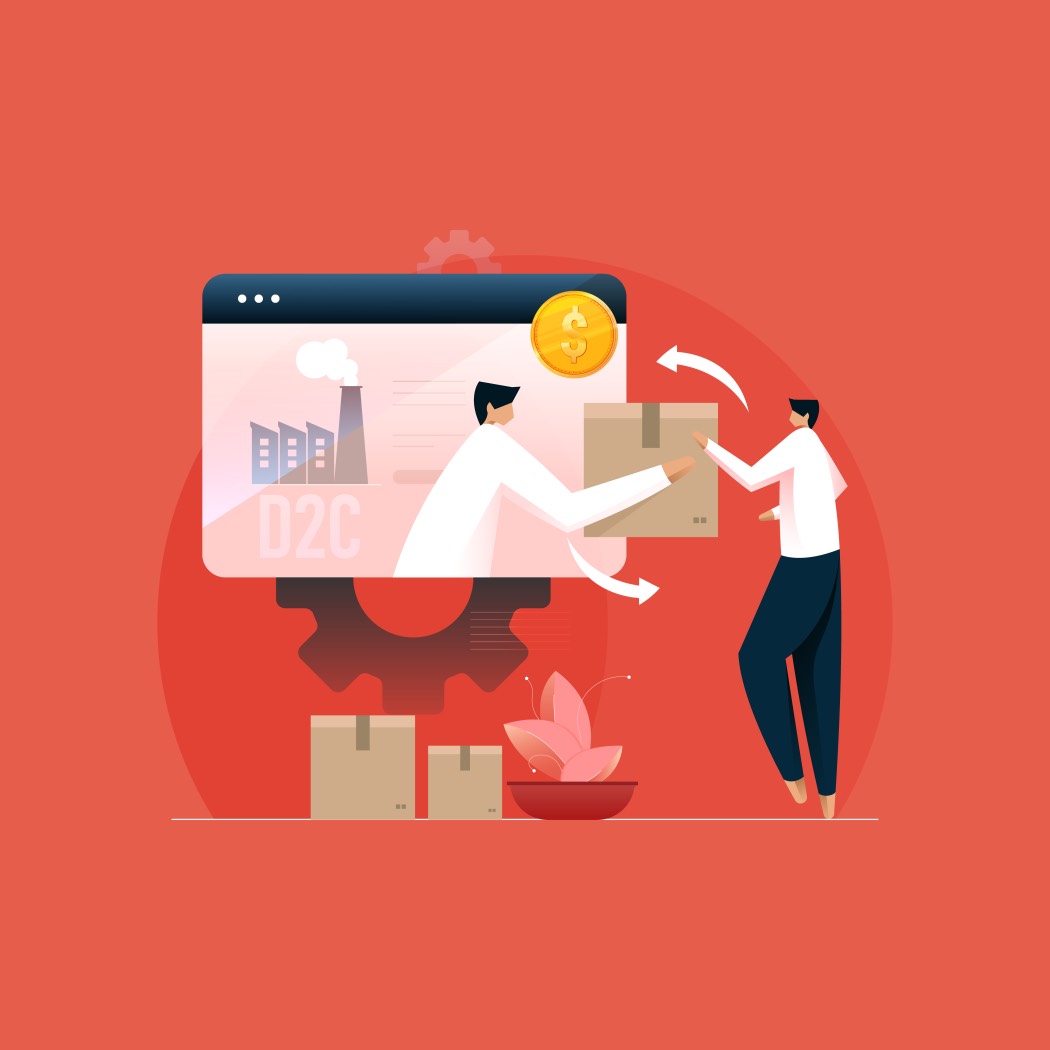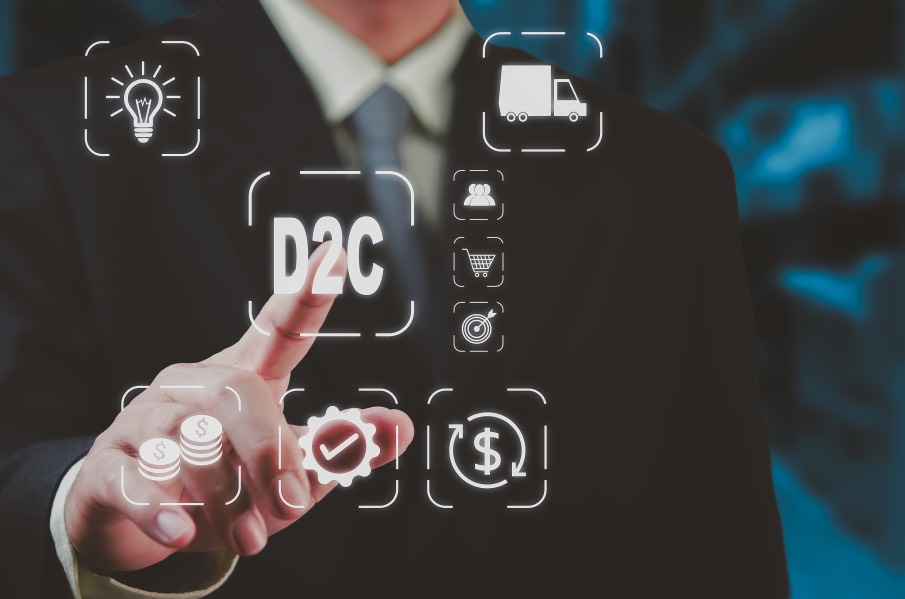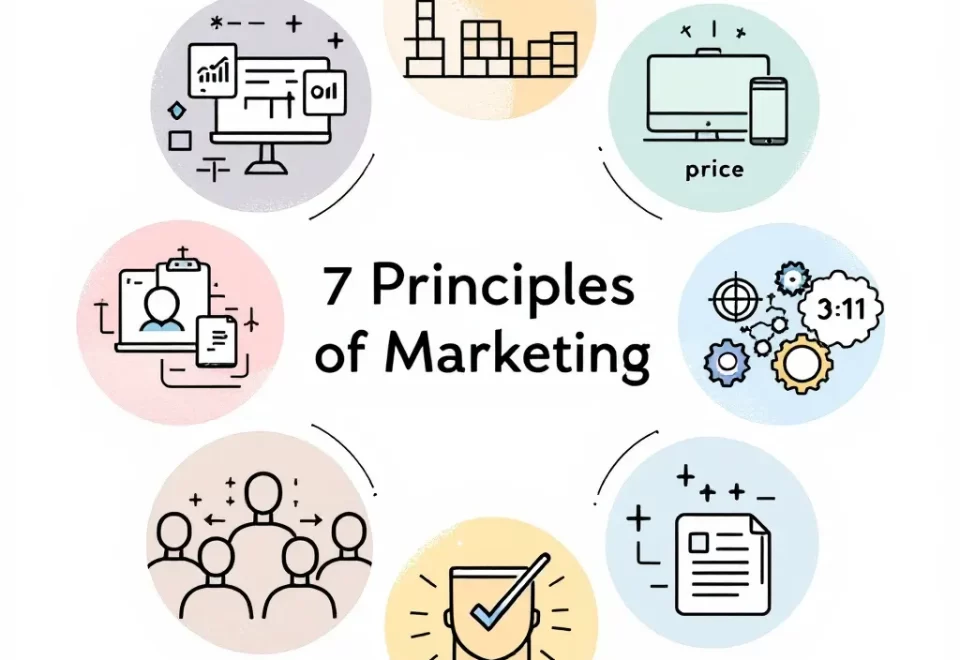Most businesses these days are either conducted in B2C or D2C. But what does that mean, and how do you know which is best for your business? In this guide, we’ll outline the key differences between the two approaches and when it might be best to choose one over the other. By understanding the pros and cons of B2C and D2C marketing, you can decide which route is right for your company. So read on to learn more!
What is B2C Marketing?
B2C marketing, or business to consumer marketing, is the process of marketing products and services to consumers. This type of marketing typically involves mass advertising and promotion through television, radio, print, and digital channels. The goal of B2C marketing is to reach many potential customers, hoping that some will convert into paying customers. Here the customer data is collected by the business and used to generate insights that can be used to improve the effectiveness of marketing campaigns.
Different business models will require different approaches to B2C marketing. For example, a company that sells physical goods will likely need to invest in marketing efforts like product demonstration and placement in retail stores. On the other hand, a company that sells services will need to focus on marketing campaigns that generate leads and build brand awareness.
What Are the Benefits of B2C Marketing?
There are several advantages to conducting B2C marketing:
Reach
When done correctly, B2C marketing can help you reach many potential customers. This is especially true if you invest in mass media campaigns like television and radio ads. If your target market is large, then B2C marketing can be a very effective way to reach them. The supply chain is also shorter in B2C marketing, which means that you can get your products to market faster. Like any other type of marketing, though, there is no guarantee that your target market will see or respond to your marketing efforts. But if you have a well-executed campaign, the reach can be significant. As the end consumer is the one you’re targeting, it stands to reason that a wider reach will increase your chances of making sales. And as b2c business models tend to have shorter supply chains, getting your product to market quickly is easier said than done with a B2C approach.
Recognition
Another important benefit of B2C marketing is that it can help build brand recognition. If customers are repeatedly exposed to your brand, they will be more likely to remember it when they need a product or service. Brand recognition is important because it can lead to brand loyalty. If a customer knows and trusts your brand, they are more likely to continue doing business with you in the future. The customer feedback loop is also shorter in B2C marketing, so you can quickly adapt your campaigns based on customer feedback. The online sales process is generally shorter in B2C marketing, leading to more sales.
Sales
The ultimate goal of any marketing campaign is to increase sales, and B2C marketing can help with that. By reaching many potential customers and building brand recognition, you can create more opportunities to make sales. And as we mentioned before, the shorter supply chain in B2C marketing means you can get your products to market faster and start generating revenue sooner. And as all the customer data is stored on a single platform, it becomes easier to track the sales and ROI of your marketing campaigns.
Personalization
One of the great benefits of B2C marketing is that it allows you to personalize your marketing messages. Because you are targeting individuals, you can tailor your marketing to speak directly to them and their needs. This is much more difficult in mass media campaigns like television and radio ads. But with B2C marketing, you can use personalization to your advantage. The other business models have to be more general to reach the masses, but you can get very specific when targeting individuals.
What Are the Disadvantages of B2C Marketing?
There are also some drawbacks to consider when conducting B2C marketing:
Time-consuming
B2C marketing can be very time-consuming. If you want to personalize your marketing messages, you need to get to know your target market. This involves research, surveys, and interviews. And if you’re planning mass media campaigns, those can take a lot of time and effort to plan and execute.
Do you want to leverage both B2C and D2C marketing to propel your business?
Contact Growth Hackers
Expensive
Another downside to B2C marketing is that it can be expensive. For example, if you want to reach a large number of people through TV or radio ads, those can be costly. And if you’re planning direct mail campaigns or other targeted marketing efforts.
Requires constant attention
B2C marketing requires constant attention. You need to keep an eye on your competition and be prepared to adjust your marketing strategies on the fly. This can be a challenge, especially for small businesses with limited resources.
What is D2C Marketing?
D2C marketing is a type of marketing that focuses on selling products or services directly to consumers. This type of marketing can be done through various channels, such as online, brick-and-mortar stores, catalogs, or TV infomercials.
D2C marketing is different from traditional marketing because it allows companies to build direct relationships with their customers. This type of marketing also gives companies more control over their brand and how they communicate with their customers. Whether you sell products or services or want to reach your customers directly, D2C marketing may be right for you.
What Are the Benefits of D2C Marketing?
There are many benefits of D2C marketing, such as:
Building a direct relationship with customers
D2C marketing allows you to build a direct relationship with your customers. This type of relationship can be beneficial for both you and your customers. For example, you can get to know your customers better and learn about their needs and wants. This knowledge can help you improve your products or services and make them more customer centric. Customers may also appreciate the direct relationship and feel more loyal towards your company. Retail stores are not always able to offer this type of relationship. Many times, customers are anonymous to the store and its employees.
More control over your brand
Direct to consumer marketing gives you more control over your brand. You can control how you communicate with your customers and what message you want to send. This can be beneficial if you want to build a strong and recognizable brand. For example, if you want to be known for your quality products, you can ensure that your customers always have a positive experience with your brand. Even if you sell through a third-party retailer, you can still include branding elements (such as your logo) on your product packaging.
Improved customer service
D2C marketing can improve your customer service. When you have a direct relationship with your customers, you can address their concerns more quickly and efficiently. Additionally, you may be able to provide more personalized service, which can lead to happier customers. Even if your customer service is already good, D2C marketing can help you take it to the next level. Several D2C brands have built their businesses by providing exceptional customer service.
For example, the online store eyeglasses Warby Parker offers free home try-on, so customers can try on glasses before they buy them. They also have a “try five at once” option, so customers can compare different styles. And if you’re not happy with your purchase, they have a hassle-free return policy. Warby Parker’s focus on customer service has helped them become one of the most successful D2C brands.
Increased sales
D2C marketing can lead to increased sales. When you sell directly to customers, you eliminate the middleman and keep more of the profits. Additionally, D2C marketing can help you reach new markets and expand your customer base. This can result in even more sales and growth for your company. A lot of B2C marketing is about reaching as many people as possible. However, D2C marketing allows you to focus your efforts on a specific target market. This can lead to more conversions and sales in the long run.
Further, D2C marketing can help you build relationships with your customers. When you have a direct line to your customer base, you can nurture these relationships and turn one-time buyers into lifelong fans. Plus, the sales channels are wide open when you control your D2C marketing strategy. You can sell through your website, online marketplaces, social media, brick-and-mortar stores, and more.
Get an edge over your competition by utilizing B2C and D2C marketing!
What Are the Disadvantages of D2C Marketing?
There are a few disadvantages of D2C marketing to consider:
You may alienate your existing customers
When you focus on marketing directly to consumers, you may inadvertently alienate your existing customers. If you change your messaging or target a different audience, your current customers may feel left out or unimportant. Like anything, you must strike a balance and ensure that your current customers still feel valued. You should keep your existing customers in mind even if you’re targeting a new audience. The online shopping landscape is very competitive, and it’s easy for customers to take their business elsewhere if they feel like they’re not being valued. To collect customer data, you may need to offer incentives as well.
You may miss out on important data
When you market directly to consumers, you may miss out on important data that could help you understand your target market better. For example, if you’re selling products through a retailer, they may have data about what other products are being purchased along with your product. This could give you valuable insights into your target market’s needs and wants. In direct to consumer model, you don’t have access to this data.
You may not be able to reach your entire target market
Depending on your product or service, you may not be able to reach your entire target market through direct marketing methods. For example, if you’re selling products that are only available online, you may not be able to reach consumers who don’t have access to the internet. This is something to consider when formulating your marketing strategy.
It can be difficult to establish trust
When you’re marketing directly to consumers, it can be difficult to establish trust. This is because there’s no intermediary between you and the consumer, so they may not have any reason to trust your brand. This can be a challenge, but there are a few ways to overcome it. You can start by ensuring that your website is professional and easy to navigate. You can also offer customer testimonials or reviews to give potential customers some social proof that your product or service is trustworthy.
You may need to invest in new technology
When you market directly to consumers, you may need to invest in new technology to reach them. For example, if you want to send out email marketing campaigns, you’ll need to invest in an email marketing platform. This can be a significant upfront cost, but it’s important to consider when formulating your marketing strategy. Suppose you want to use social media to reach consumers. In that case, you’ll need to create accounts on various platforms and make sure you’re using them effectively. Investing in new technology can be a barrier to entry for some businesses, but it’s important to consider when direct marketing to consumers.
It may require a lot of time and effort to get started
Depending on your product or service, getting started with direct marketing to consumers may require a lot of time and effort. This is because you may need to build a customer base from scratch. If you’re selling products online, you’ll need to drive traffic to your website and convince people to buy your product. This can be a significant investment of time and effort, but it’s important to consider when formulating your marketing strategy.
You may have to sacrifice some margins
When you market directly to consumers, you may have to sacrifice some margins in order to compete with other businesses. This is because you’ll be selling your product or service at a lower price point than if you were selling through a retailer. This is something to consider when formulating your pricing strategy. You’ll need to balance the need to attract customers with the need to make a profit.
Final Words on B2C vs D2C
There’s no right or wrong answer regarding B2C vs D2C. It ultimately depends on your product or service, target market, and business goals. If you’re selling a product online, you may want to consider direct marketing to consumers. However, if you’re selling a product only available through retailers, you may want to focus on business-to-consumer marketing. Ultimately, the decision comes down to what’s best for your business.
If you’re unsure which approach to take, we suggest talking to a marketing professional. They can help you understand the pros and cons of each approach and make a recommendation based on your specific business goals.
Thank you for reading! We hope this article was helpful. If you have any questions or comments, please feel free to leave them below.
Growth Hackers is an award-winning B2C and D2C marketing agency helping businesses from all over the world grow. There is no fluff with Growth Hackers. We help entrepreneurs and business owners utilize B2C and D2C marketing to increase their sales and productivity, generate qualified leads, optimize their conversion rate, gather and analyze data analytics, acquire and retain users. We go further than brand awareness and exposure. We make sure that the strategies we implement move the needle so your business grow, strive and succeed. If you too want your business to reach new heights, contact Growth Hackers today so we can discuss about your brand and create a custom growth plan for you. You’re just one click away to skyrocket your business.

